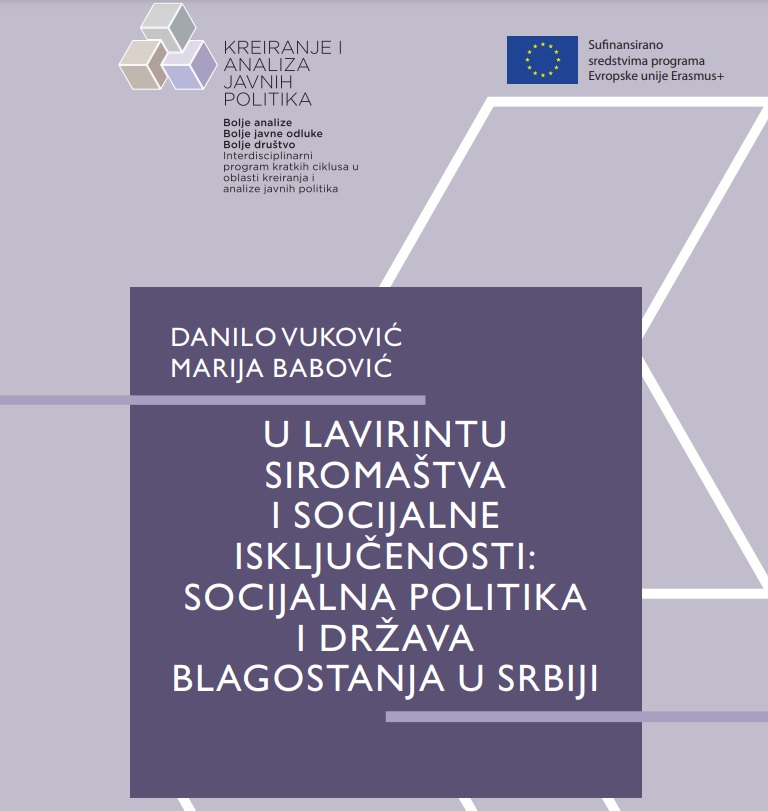As part of the ERASMUS+ project “Public Policy Making and Analysis (PPMA)”, financed by the European Commission, the publication entitled “In the labyrinth of poverty and social exclusion: social policy and the welfare state in Serbia”, by Marija Babović and Danilo Vuković, saw the light of day.
University of Novi Sad, University of Belgrade, University of Niš, King’s College London (United Kingdom), Université Paris-Est Creteil (France), Universiteit Leiden (Netherlands), Public Policy Secretariat of the Republic of Serbia, Human Resource Management Service of the Republic of Serbia, SeConS Development Initiative Group, Foundation for the Advancement in Economics, La 27e Région (France) and Standing Conference of Towns and Municipalities participated in project implementation.
This publication reflects the views of the authors, and the European Commission cannot be held responsible for any use that may be made of the information contained therein.
The book consists of four chapters. In the first chapter, attention is focused on the concepts of poverty and social exclusion, basic theories and concepts that deal with these phenomena, as well as on the distinguishing of these concepts and the related ones, such as discrimination, inequality and the like. The remainder of this chapter elaborates on different approaches and methodologies for measuring poverty and social exclusion. In the second chapter, the state of poverty and social exclusion in Serbia is presented in a comparative framework with the EU and countries in the region. Special attention is paid to groups at particular risk of poverty and social exclusion, with the intention of considering specific problems and challenges faced by these groups. These groups include children and young people, the elderly population (age 65 and over), the population of rural areas, people with disabilities, Roma, LGBTI+ groups, while presenting also gender inequality as one of the important aspects. The third chapter is focused on the welfare state and points to its different modalities as well as to trends of change in the contemporary context. Finally, the fourth chapter presents the policies in the fight against poverty and social exclusion in Serbia. Special attention is paid to the current policies in education, work and employment, social and health care.
Word from the authors: “We have written this book with the intention of bringing the issues of poverty and social exclusion back into focus as consequences of contemporary policies and deep structural processes that manifest themselves through increasing conflicts and crises of various kinds, from political through environmental to health and pandemic. Such conditions are extremely difficult for social groups that, even in regular conditions, face existential problems due to a lack of resources and the inability to access important services and forms of support. In addition, these conditions produce new groups at risk of poverty and social exclusion, as an issue which decision-makers only begin to think about when serious consequences are likely to occur. New groups of unemployed and forced migrants will only make the picture of poverty and social exclusion more complex. For now, we do not see adequate political answers to this complexity, neither in the national nor in the international context. This book is therefore intended for all those who want to remind themselves of, or gain knowledge about, the problem of poverty and social exclusion, and to direct their work towards that area or improve it.”

